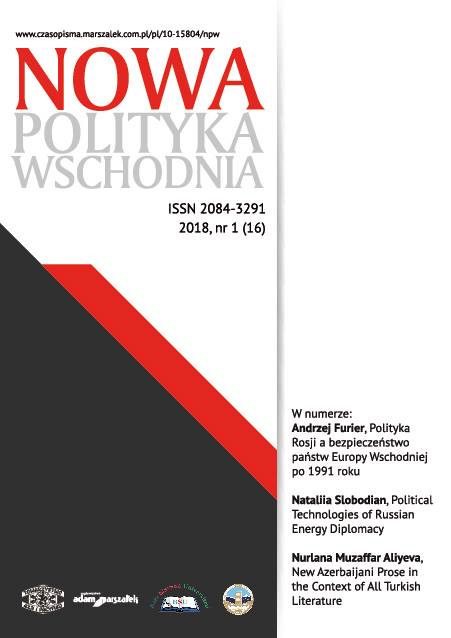The Water Resources Management in Central Asia – The Political and Economic Contradictions as a Source of Inefficiency
The Water Resources Management in Central Asia – The Political and Economic Contradictions as a Source of Inefficiency
Author(s): Tomasz WaśkielSubject(s): Politics, Geopolitics
Published by: Wydawnictwo Adam Marszałek
Keywords: Central Asia; water resources; political and economic conflicts
Summary/Abstract: The issue of access to water in Central Asia has a centuries-old history and it is an exceptionally complex issue. The Central Asian republics, for twenty – six years of their sovereignty, have not been able to create an effective water resource management system. This state of affairs causes constant disputes and controversies, as well as various threats – social, economic and environmental. The article explores the genesis of the problem, especially from the period of Soviet power, when huge irrigation system was created and based on two rivers: the Syr Darya and the Amu Darya. These powerful investments combined with extensive farming are the root causes of today’s problems. The countries of the region tried to regulate the issue of managing the water resources by signing regional agreements in this matter, the most important are these signed in: Almaty, Kyzyl–Orda and Ashgabat. Bilateral or tripartite agreements between states were also concluded. Unfortunately, most of them were ineffective, contractual provisions remained only in writing. One could say that the cooperation between Kazakhstan and Kyrgyzstan on the rivers Chu and Talas is the only positive example. The contradictory economic and political interests of Central Asian countries were recognized as the main source of the water management system inefficiency. 86 ARTYKUŁY Relations between the states are often suspicious and fueled by nationalism. Central Asia is a region that is not internally integrated, in which it is difficult to develop inter-state agreements. The author concludes that the shift in Uzbekistan’s foreign policy may support developing a new regional compromise in the long term perspective.
Journal: Nowa Polityka Wschodnia
- Issue Year: 16/2018
- Issue No: 1
- Page Range: 85-100
- Page Count: 16
- Language: Russian

